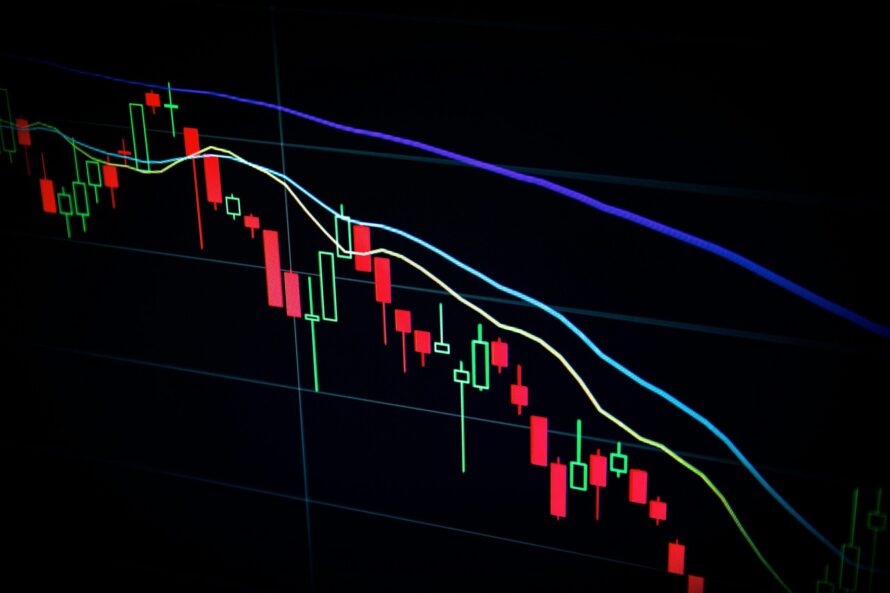Understanding Share Market Expiry Days Guide

Key Highlights
- Expiry days mark the deadline for futures and options (F&O) contracts in the securities market, requiring settlement or rollover.
- The expiry date determines the last day for trading a particular contract.
- India’s stock exchanges offer weekly and monthly expiry options, with different indices having specific expiry days.
- Understanding expiry days is crucial for traders as it significantly impacts trading strategies and market volatility.
Introduction
In the fast-changing world of the securities market, knowing about expiry days and reading the disclaimer is important for all investors and traders. An expiry date is the exact trading day when a derivative contract, like a futures or options contract, ends. This date shows when holders must close their positions. They can either use their contract or let it expire.
The Basics of Share Market Expiry Days
Expiry days are the final dates for people holding financial contracts, like futures and options, to close their positions. This date marks the last day these contracts can be traded on the market. If a trader does not settle their position before the expiry date, it might lead to automatic execution or penalties.
Expiry days can happen at different times in various markets. However, they usually occur monthly or weekly, including weekly contracts. For example, monthly contracts often expire on the last Thursday of the month. Weekly options, on the other hand, have an expiry date every Thursday. These regular expiry dates help keep the market running smoothly and give traders a clear time to manage their positions and strategies.
Understanding Weekly Expiry in Indian Markets
The idea of weekly expiry is very important in the Indian stock market. This market has high liquidity and an active derivatives section. The National Stock Exchange of India (NSE) on Tuesday announced that it offers weekly expiry options for different indices, like Nifty Futures. These weekly expiries usually happen on Thursdays. They let traders focus on shorter timeframes, take advantage of quick market moves, and handle risks better.
The last Thursday of the month is very important in the Indian stock market. Monthly contracts, including Nifty Futures, quarterly contracts, and other derivatives, end on this day. As a result, the last Thursday sees more trading activity and increased volatility. Traders rush to settle their positions before the expiry deadline, which leads to a surge in trading volumes.
This special feature of the Indian stock market, with both weekly and monthly expiries, gives traders more flexibility. They can manage their portfolios better and change their strategies to go after short-term market changes.
The Significance of Expiry Days for Traders
Expiry days are important for traders because they affect their trading plans. When contracts are about to expire, trading volume and volatility usually increase. This can create chances to make profits but also brings risks. Traders pay close attention to these days to make changes to their positions smartly.
The expiry days also affect the liquidity of options contracts. As the expiry date gets closer, the value of these contracts often drops because of time decay. Liquidity might lessen, especially for out-of-the-money options. Traders must keep this in mind to make their trades work well.
It is essential for traders to understand expiry days to do well in the markets. Knowing that volatility may rise, how it affects liquidity, and the need to change trading strategies can help traders improve their positions and handle risks.
Key Indices and Their Expiry Cycles
In the Indian stock market, there are two important indices, Nifty 50 and Bank Nifty. They are very important in the derivatives section. Each index has its own expiry schedule that traders should know about.
Nifty 50 contracts usually expire on Thursdays. On the other hand, Bank Nifty contracts expire on Wednesdays. This difference in expiry is key for traders. It impacts their trading plans and how they manage risks.
Revised Nifty 50 and Bank Nifty Expiry Day
In a circular released on March 4, 2025, the National Stock Exchange (NSE) announced a key update to its derivatives trading schedule. Effective April 5, 2025, the expiry day for all Nifty futures and options (F&O) contracts will shift from Thursday to Monday.
This modification applies to both weekly and monthly contracts. The table below outlines the updated expiry schedule for various Index and stock derivatives impacted by this change.
| Derivatives | Contracts | Current Expiry Day | Revised Expiry Day |
| Index | NIFTY weekly contracts | Thursday of the expiry week | Monday of the expiry week |
| NIFTY monthly, quarterly and half yearly contracts | Last Thursday of expiry month | Last Monday of expiry month | |
| BANKNIFTY monthly & quarterly contracts | |||
| FINNIFTY, MIDCPNIFTY and NIFTYNXT50 monthly contracts | |||
| Stocks | All Monthly contracts |
Understanding these expiry cycles allows traders to plan their strategies accordingly. For instance, a trader anticipating high volatility in the banking sector might focus on Nifty Bank options expiring on Wednesday.
Additionally, traders need to consider other factors like strike price, option premiums, and market sentiment when making trading decisions related to Nifty 50 or Bank Nifty expiry.
Impact of Expiry Days on Market Volatility
Expiry days are often linked to more activity in the market. As the time for contract settlement gets closer, traders change their positions. They do this based on the market mood, news, and their views on the underlying asset. This rush can cause big price changes in index options, especially during the last hours of trading.
Also, market news and events before the expiry day can really affect volatility. Surprising economic data, company news, or events around the world can change how people feel about the market. This can lead to bigger price shifts in index options. This extra volatility can offer both chances and risks for traders.
Some traders look to profit from these quick price movements. Others might want to close their positions before expiry to lessen the chances of loss from sudden market swings. It’s important for everyone in the market to understand the chance of higher volatility during expiry days.
How Expiry Days Affect Your Trading Strategy
Expiry days require changes in your trading plans. As the expiry date approaches, think about closing or moving your positions in contracts that are ending soon. This will help you avoid automatic execution or assignment. Try to focus on strategies that do well when there is more volatility, like short-term option trades.
If you are looking at the long term and want to stay out of the busy time around expiry, you should adjust your positions early. You can roll over your options contracts to a later expiry date or exit your positions to reduce risks.
Adjusting Your Positions Before Expiry
Adjusting your positions before the expiry day is a smart move for many traders. This is especially true for those who want to avoid the increased volatility and risks of last-minute changes. It’s best to settle or roll over your positions on the previous trading day to prevent any issues.
Also, keep in mind any trading holidays that may be close to the expiry date. If the expiry day is a holiday, the contracts usually end on the previous trading day. Always check for updates from the exchange about any holiday schedules that could affect expiry days.
Don’t forget, if you do not handle your expiring positions by the end of the day on expiry day, your brokerage might take action automatically. This could lead to unexpected losses or positions you don’t want in your account. For this reason, managing your positions early is very important.
Strategies to Capitalize on Expiry Day Movements
Traders who want to make money from the changes on expiry day often use certain strategies. Here are a few to think about:
- Straddle/Strangle: This means buying a call option and a put option at the same strike price and expiry. This strategy can make a profit if the price moves a lot in either direction.
- Iron Condor: This involves selling a call option that is out of the money, buying a call option that is even further out of the money, selling a put option that is out of the money, and buying a put option that is even further out of the money. This strategy aims to gain from low volatility.
Remember, using strategies on expiry day has risks. They can be profitable, but it’s essential to understand options trading, risk management, and market behavior before using them.
Make sure the strategy you choose fits your risk tolerance and market view. Also, look at factors like the price trends of the underlying asset, as well as volatility and liquidity, to help you choose your strategy.
Understanding Investment Risks & Risk Tolerance Assessment
Investing in the stock market has some risks. It’s important to know how much risk you can handle. Your risk tolerance is your ability to deal with possible losses in your investments. Different investment choices have different levels of risk. For example, a mutual fund is usually safer than buying individual stocks.
When you think about your risk, look at things like your money goals, how long you wish to invest, and your comfort with market ups and downs. It is best to pick investments that fit your risk level. If you don’t like taking risks, you should choose safer investments. But if you are okay with higher risks, you can consider jumping into riskier options.
Conclusion
In conclusion, knowing the expiry days in the share market is very important for traders. This knowledge helps them trade better. By understanding the weekly expiry times in Indian markets, looking at the expiry cycles of key indices, and changing their positions before expiry, traders can improve their strategies. They can also take advantage of market changes. It’s important to manage risks by understanding personal risk tolerance. This helps with long-term success in the stock market. So, stay updated, adjust your strategies, and use expiry days to sharpen your trading skills and reach your financial goals.
Frequently Asked Questions
What happens if I don’t square off my F&O positions before expiry?
If you do not close your F&O positions before expiry, your broker may automatically exercise or settle them according to exchange rules. For index derivatives like Nifty or Bank Nifty, this typically results in cash settlement. However, for stock F&O contracts, it may lead to physical delivery of the underlying shares.
How does the weekly expiry impact market liquidity?
The addition of weekly expiry, especially in Nifty Options and BankEx contracts, has really improved market liquidity. This change has brought more trading as traders join in on these shorter expiry periods.
How do expiry days differ between Nifty and Bank Nifty?
Nifty and Bank Nifty are both index options, but they have different expiry days each week. Nifty expires on Thursday, while Bank Nifty expires on Wednesday. They both have the same expiry day each month, but their lot sizes and contract details are not the same.
Disclaimer
The stocks mentioned in this article are not recommendations. Please conduct your own research and due diligence before investing. Investment in securities market are subject to market risks, read all the related documents carefully before investing. Please read the Risk Disclosure documents carefully before investing in Equity Shares, Derivatives, Mutual fund, and/or other instruments traded on the Stock Exchanges. As investments are subject to market risks and price fluctuation risk, there is no assurance or guarantee that the investment objectives shall be achieved. Lemonn (Formerly known as NU Investors Technologies Pvt. Ltd) do not guarantee any assured returns on any investments. Past performance of securities/instruments is not indicative of their future performance.







